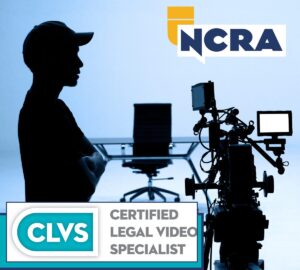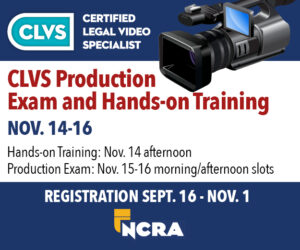Earning professional certifications means different things to different people. For some, it might be a requirement to be able to work; for others, it might be the desire to increase their skills in a certain area. But for everyone who earns a professional certification, the achievement always gives the recipient a greater sense of pride.
In honor of 2019 Celebrate Certification Month, the JCR reached out to several NCRA members who hold the highest number of professional certifications to learn more about what motivates them and why professional growth has been such an important part of their
careers.
Be the best that we can be
Jo Anne Betler, FAPR, RDR, CRR, CLVS, CRC, CPE, from Huntington, W.Va., is a freelance court reporter, CART captioner, and agency owner. She also holds the Realtime Systems Administrator and the Trial Presentation Professional certificates.
JCR | How long have you been a working court reporter and captioner?
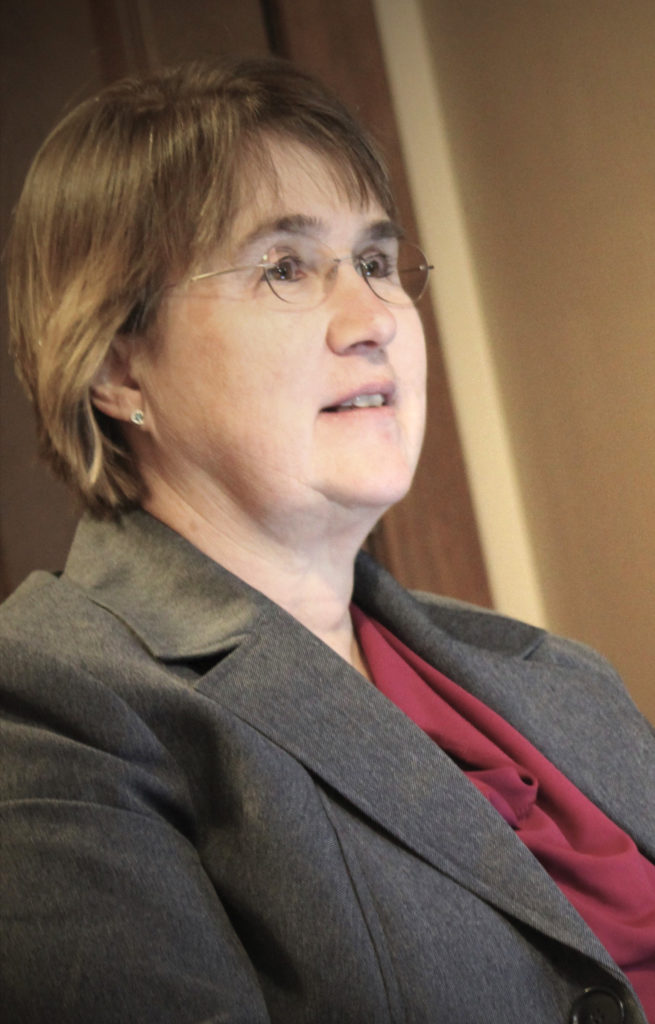
BETLER | I graduated from Huntington Junior College in March of 1982, so… My goodness, that makes it 37 years. Surely, it’s not been that long — seems like yesterday.
JCR | What areas of the profession have you worked in?
BETLER | My first position in the profession was as a transcriptionist for other reporters while I was still in school. This was back when we used typewriters and carbon paper and dictation from the reporter. Upon graduation, I worked my first eight years as a freelance reporter before I had the opportunity to accept an official position. I held that position for 25 years. Upon my “retirement” from my official position, I returned to freelance and CART. During my tenure as an official, I continuously provided realtime and CART services for the court when needed.
Having returned to the freelance arena, I continue reporting and providing CART services. CART has been both on-site and remote in either an individual or a public big screen setting. While I hold my CLVS certification and am available, I prefer to work as the reporter. I have yet to caption on air, but I’m not through yet.
JCR | How did you learn about the profession?
BETLER | When I was in elementary school, my mother was a legal secretary. She would also transcribe dictation for a few reporters over the years. I remember going to the courthouse to deliver her work to Colin Miller, a pen writer. Little did I know that 30 years later that his very office would be mine!
When my family moved to Louisville, Ky., my mother transcribed for reporter Margaret Commons of Yoder & Commons. She encouraged my mother to become a reporter. She even gave my mother a machine. Mom then took classes through a correspondence course with that machine. Due to family commitments during that time, Mom was unable to finish. I later was able to start school with that machine.
JCR | What was your motivation to earn so many professional certifications?
BETLER | My motivation to attain my certifications has varied from time to time. First, my parents encouraged me. Education has always been important, so pursuing certification just kind of fell into place. When I graduated and began working, I did not need certification, but I wanted to be an official reporter. Official positions required certification.
I passed the West Virginia state certification and got the official position. I could have stopped there, but if I passed the RPR, I would get a raise. If I attained the CRR and RMR, that would allow another raise for each certification. I had the honor to work for Judge John L. Cummings for 20 years. He encouraged me to pass the CRR, because he wanted me to provide realtime. And I can’t forget my husband. Gene has always supported me and encouraged me that I could do it. And I did!
I did have friends and coworkers ask me why I continued to pursue certifications. “You don’t need them.” They were wrong. I did need them. I needed them for myself. I was the one that could say: “I did it.”
JCR | How have these certifications helped you in your overall career?
BETLER | Certification has given me not only the opportunity of being an official reporter, I was given three separate raises upon attaining the certifications RPR, CRR, and RMR. Those raises not only increased my income at the time, they increased my retirement annuity. They gave me the opportunity to be assigned to different counties and cases in order to provide realtime. I have had the opportunity to serve on committees and provide input to others.
And I have received jobs because of my certifications. Above all, pursuing certification pushed me to improve my skills as a reporter.
JCR | How has earning these certifications helped you in
your overall confidence?
BETLER | It’s difficult to put into words the feelings of pride and confidence that each certification has given me. They allow me to recognize that I do have the knowledge and skills to strive to be the best I can be.
JCR | What is the biggest benefit of earning a professional certification?
BETLER | The biggest benefit for me has been the confidence and prestige that goes hand-in-hand with each certification. The pay increases and job opportunities have been nice!
JCR | What would you say to encourage others to earn professional certifications?
BETLER | I encourage everyone to reach for the stars. Be the best you can be. We never know where our lives will take us. Having not only certification, but advanced certification, gives us the ability and advantage to be ready for changes or obstacles that may come our way.
At the top of our game
Sandra A. German, FAPR, RDR, CRR, CRC, CRI, CPE, is a CART and broadcast captioner, and agency owner from Cochrane, Alberta, Canada. She has been in the profession since 1979.
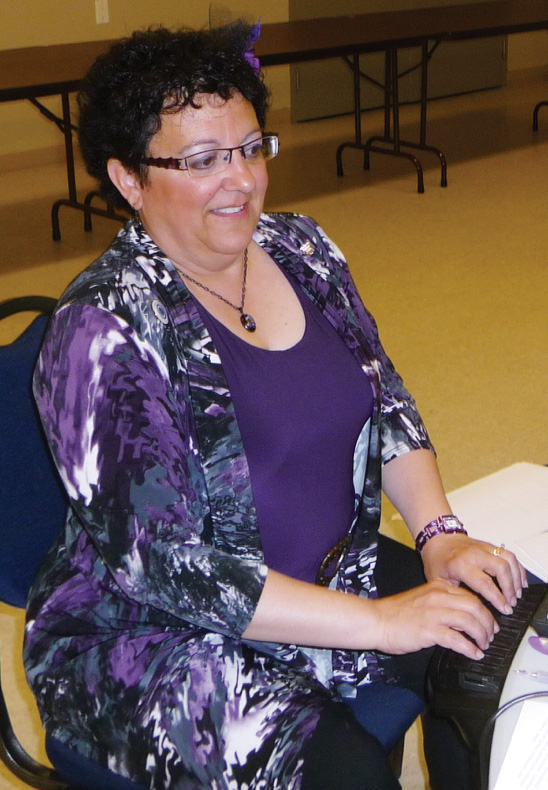
JCR | How long have you been a working court reporter and captioner?
GERMAN | I graduated from the Northern Alberta Institute of Technology (NAIT) court reporting program in Edmonton, Alberta, Canada, in May of 1979, so this year is my fortieth year in this career! Over the years, I’ve been an official and freelance court reporter, a court reporting firm owner, a sessional instructor at NAIT, a broadcast captioner, and CART captioner, and I now own Canada’s largest remote CART captioning company, AB Captioning & CART Inc.
JCR | Anything else we should know about your background?
GERMAN | I pioneered CART in Alberta, Canada, in 1990. Those were the days of the technology dinosaurs! We had nowhere to go but explore and delve into the many exciting opportunities that lie ahead.
JCR | How did you learn about the profession?
GERMAN | My dad knew two women from my hometown who had become court reporters, and he thought this profession might be a good fit for me. I guess he was right!
JCR | What was your motivation to earn so many professional certifications?
GERMAN | I always wanted to improve my skills and be the best that I could be. Writing shorthand has always been a game for me and fascinated me at the same time, and when realtime became a reality in the early 1990s, seeing my steno translate quickly into words on the screen was a thrill! Then seeing my writing on national television was
the ultimate dream come true!
I believe it’s ultimately important to earn professional certifications to stay on top of our game, especially when you operate a business. If you want to be the crème de la crème in your industry, you need to demonstrate that to your clients and also be an inspiration to the team of writers that work with you to hopefully encourage them to do the same.
JCR | How have these certifications helped you in your
overall career?
GERMAN | The old adage, you get what you pay for. Our clients demand the best quality CART captioning for their events. We have some of Canada’s best writers working with our team, who also possess NCRA certifications.
JCR | How has earning these certifications helped you in your overall confidence?
GERMAN | Well, our company is always eager to take on difficult or high-profile assignments or new technology. I can’t answer if that’s because of our certifications or not. Maybe we’re all just keeners!
JCR | What is the biggest benefit of earning a professional certification?
GERMAN | I believe clients want the best quality CART captioning and value for their money, and they’re willing to pay more than what entry-level or non-steno services can provide.
JCR | What would you say to encourage others to earn professional certifications?
GERMAN | More education and knowledge is always a positive, without fail. We never know what we will learn every day on the job. I always said if I learned one thing every day, the day would not be a waste. And I can confidently say that I haven’t had a wasted day in 40 years in this career!
A way to stand out
Kimberly R. Xavier, RDR, CRR, CRC, CMRS, CRI, is an official court reporter from Arlington, Texas. She also holds the Realtime Systems Administrator certificate. She has been in the profession for 25 years.
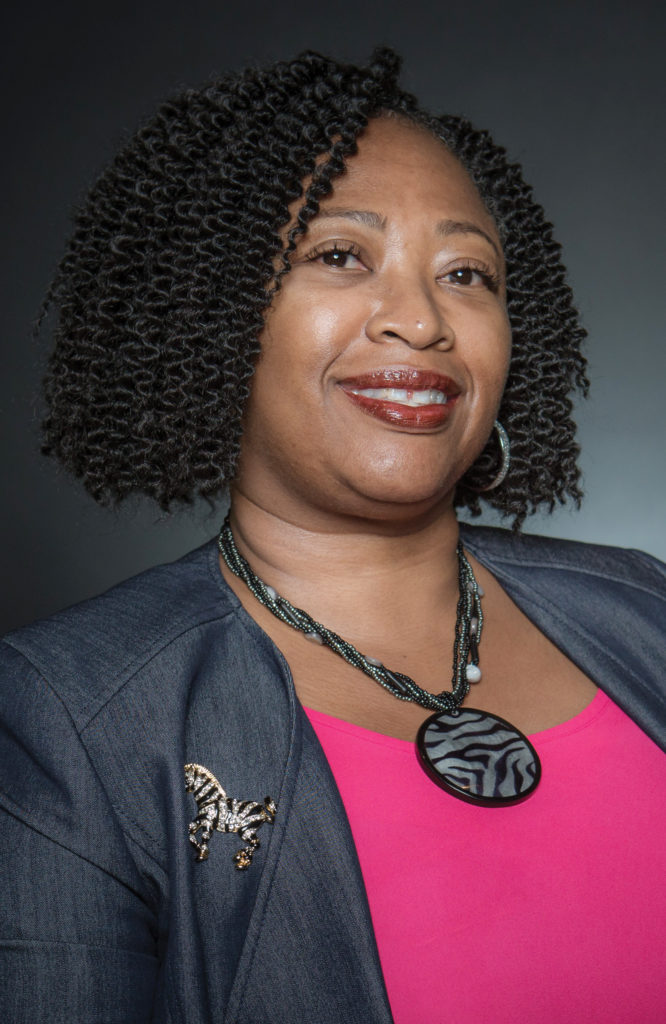
JCR | How long have you been a working court reporter?
XAVIER | I have been a working court reporter for 25 years as of this summer, and I can’t imagine doing anything else for that many years.
JCR | What areas of the profession have you worked in?
XAVIER | As of the 25th year, the bulk of my career has been as an official court reporter, but I started out as a freelance reporter, and I also owned a full-service freelance firm for many years. Right now, I’m working on polishing up my skills so that I can take on event captioning.
I love the fact that we have so many career options to choose from, and I intend to explore them all!
JCR| How did you learn about the profession?
XAVIER | I had never even heard of court reporting until I got a phone call out of the blue from an old military roommate. I had decided to separate from the Air Force and she was considering doing the same, so our discussion naturally turned to what we would do in the civilian world.
She mentioned court reporting, and it piqued my interest enough that soon after that call, I pulled out the Yellow Pages (that tells you how long ago it was) and discovered there were two schools in the area. I ended up enrolling in court reporting school, and I heard through the grapevine that my old roommate ended up staying in and retiring from the military. We haven’t spoken since, but to this day, I’m convinced God sent her to me to plant that little steno seed.
JCR | What was your motivation to earn so many professional certifications?
XAVIER | Once I knew there were advanced certifications to be earned, it was always a professional goal for me. I mean, why wouldn’t you strive to get better and do your best in the field you work in on a daily basis? But I’d have to say that the thing that pushed me full steam ahead was speed competitions. I had gone for an interview with a firm, and one of the firm owners was displaying her Paul Burris Speed Cup. That was my first glimpse of the top award for our speed contest in Texas. I distinctly remember that crystal trophy glowing and calling out my name.
I left that office and did some research and found out that you had to be a merit writer to even earn a seat at the contest. From that day on, I pushed myself to get that certification, and it was just a natural progression to get the others.
But earning some of the other certs, like the CRI and the CMRS, came from my own freakish need to “feel” prepared. I think our community has always fallen short in the area of training new reporters, so about 10 years into my career, when I finally felt like I knew what I was doing myself, I began providing training opportunities for new reporters who were willing to put in the time. When the CRI came about, it sounded like something that would help me in my attempts to help other reporters. I actually ended up taking that one twice, a few years apart, before actually obtaining the certification. The CMRS caught my eye when I was running my own firm because I’ve always felt a huge gap between my steno sense and my business sense. I’m still very much attracted to just about anything that promises to sharpen my business judgment and understanding.
JCR | How have these certifications helped you in your overall career?
XAVIER | I have been fortunate enough not to have to search for jobs too many times in my career, but when I have, I believe my résumé has set me apart from the crowd when I have needed it to. But I don’t want it to sound as if I believe certifications make the reporter. They certainly don’t. I believe in being a well-rounded reporter, so I’ve made it a habit to be a help in the court reporting community through volunteering for committees and leadership positions as well. I think all of these things have helped me in my overall career.
JCR | How has earning these certifications helped you in your overall confidence?
XAVIER | Earning advanced certifications is definitely a confidence booster. At the end of the day, non-steno people are probably not impressed, but there is no greater feeling than walking into a room and feeling like you can handle whatever is thrown at you and then actually handling whatever is thrown at you. Most working reporters would probably agree that believing in yourself plays a huge part in being successful when it comes to test-taking, and once you’ve proven yourself through advanced certifications, it’s hard to talk yourself into not being confident in what you’re doing.
JCR | What is the biggest benefit of earning a professional certification?
XAVIER | I would have to say I believe the biggest benefit is to the court reporting community as a whole. At the end of the day, we are judged by the least of us and the services we provide are of such importance that there should be no room for mediocrity. Obtaining professional certifications lends legitimacy to this career field. It gives us an opportunity to challenge ourselves and grow. Professional development goes a long way towards personal growth. As human beings we should always be reaching for “more” and making efforts to improve and evolve.
JCR | What would you say to encourage others to earn professional certifications?
XAVIER | Let us all remember that 225 wpm is an entry-level speed, and we are not meant to stand in the entrance. We need to pass through it. How would you like it if you found out that your kids’ doctor or dentist had gotten out of medical school or dental school five, 10, 15 years ago and never did another thing to improve their skills? You wouldn’t like that, would you? Who wouldn’t want the best darn doctor or dentist they could afford tending to your kid?
We need to think of the services we provide as something that is just as important as other professions where we expect high standards to be maintained, and the responsibility for maintaining those standards rests with each of us.
I think we can take a look at the way our field has changed over the last decade and that alone should encourage us to want to position ourselves to be able to travel down any steno path we choose. Who knows what the future holds? It’s best to stay ready so you don’t have to scramble to get ready. The great thing about it is no matter whether you’re a brand-new reporter or a seasoned veteran, you can start from right where you are. There’s room for everyone to improve.
A sense of pride
Teresa Kordick, FAPR, RDR, CRR, CRC, CRI, CPE, is an official court reporter from Des Moines, Iowa, and has been a working court
reporter for more than 40 years.
JCR | What areas of the profession have you worked in?
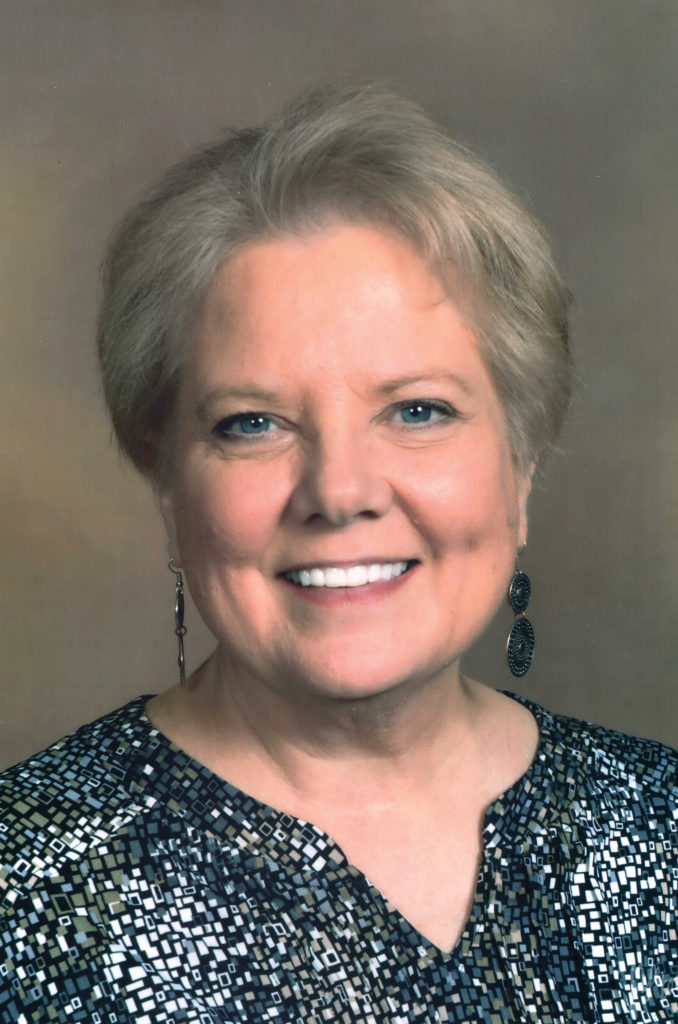
KORDICK | I have been an official except for three years of freelance on my own starting when my son was born.
JCR | How did you learn about the profession?
KORDICK | From my high school English teacher.
JCR | What was your motivation to earn so many professional certifications?
KORDICK | My first motivation was job security. There was talk even “way back when” about replacing reporters in the courts, so I wanted to make sure I had other good options available. I then earned my CRI and CPE certifications because I thoroughly enjoyed teaching the evening court reporting procedures classes at the AIB College of Court Reporting and also visiting other reporting schools as a program evaluator.
JCR | How have these certifications helped you in your overall career?
KORDICK | By earning certain certifications, I’ve been able to serve on and chair some wonderful committees (hi, TACies!) and work with exceptional reporters from all over the United States and other countries. The knowledge and contacts I’ve gained by jumping aboard the testing and association trains have made my career much more fulfilling.
JCR | How has earning these certifications helped you in your overall confidence?
KORDICK | When I have passed a certification that some of my court reporting “heroes” have passed, I have felt privileged to be in their company!
JCR | What is the biggest benefit of earning a professional certification?
KORDICK | In some states it means a pay increase for officials. Even though as an official in Iowa, I am unable to freelance, I often get calls from around the country offering me a job or asking me to do certain deposition work because of my listing in the NCRA Sourcebook. But
the biggest benefit is knowing I’ve done the best I can do in my profession. I’m very proud of my certifications!
JCR | What would you say to encourage others to earn professional certifications?
KORDICK | Just do it! It can be scary and seem expensive, but this is your career. Stay in the testing mode and try again if you need to. I didn’t pass everything on my first try, but I learned what I needed to focus on for the next time. Also, the more involved you get with committee and association work on both the state and national levels, the more you will absorb helpful topics and learn practice skills. And remember, those who have gone down the path before you are ready to help!
Certification builds credibility and confidence
Shirley Hall, FAPR, RDR, CRR, CRC, CRI, CPE, is an official court reporter from Pittsburgh, Pa. She has been a working court reporter for more than 40 years.

JCR | How long have you been a working court reporter?
HALL | The years fly by so fast, that I always have to sit down and count how many have gone by when I’m asked this question. I’m surprised by my answer each time, as I think I can’t possibly be reporting that long — but it was April 1975 that I took my first freelance assignment, so that means 44 years — wow, now I’m feeling really old!
JCR | What areas of the profession have you worked in?
HALL | I began my career as a freelance reporter with a firm, then eventually went out on my own. I was a contract reporter for the federal courts the whole time I freelanced; and 11 years after I first began reporting, I became a full-time federal official court reporter. I taught a speedbuilding class at the Community College of Allegheny County for one semester and that put the teaching bug in my mind, so I wound up teaching court reporting and psychology at a local business school in the evenings for five years.
JCR | How did you learn about the profession?
HALL | I had a college-oriented curriculum all through high school, but I was overwhelmed by the class sizes and anonymity of being a non-resident student when I went straight to the main campus of the University of Pittsburgh right after high school. I knew I was not ready to be out in the world yet, so I began looking for something to do while I grew up a bit more. While touring business schools looking for something to help me get a job while I found myself, the representative at Duff’s Business School suggested court reporting. My answer was: “What’s that?” It sounded intriguing, and I enrolled.
JCR | What was your motivation to earn so many professional certifications?
HALL | My mom and dad taught me to always do the best I could at whatever it was I was doing, to try new things, and to not be afraid of an outcome. I was the oldest of four children, so I was also responsible for leading the way for them. All of this instilled in me a real thirst for knowledge, as well as a put-up-or-shut-up mentality. Once I began working, there was a natural flow to work hard to get a certification and then, once I succeeded, to move on to the next level. I was lucky enough to have my natural inquisitiveness encouraged throughout my life, so I’ve always found new areas to jump into and learn about, many of which came with certifications of some sort.
JCR | How have these certifications helped you in your overall career?
HALL | Well, I’ll go with the obvious answer first: Each certification level helped me do a better job reporting, which in turn allowed me to write more difficult but interesting proceedings. Federal court was the gold ring of reporting as I was coming up through the ranks; and by the time I had the experience to apply for an officialship, I had more than the basic certifications that were required — though I did have to apply twice before I was hired. Even after becoming a reporter for U.S. District Court, I continued working on my skills and became the first realtime reporter in my courthouse. That effort helped motivate my colleagues to get their CRRs and improved the judges’ and attorneys’ views of our office’s professionalism as a whole.
JCR | How has earning these certifications helped you in your overall confidence?
HALL | As I mentioned before, I really do have a put-up-or- shut-up attitude. My certifications have given me self-assurance that I am a good reporter and my continuing education courses have kept me up-to-date on reporter-specific subjects as well as management issues, the law, finances, health, etc. I was very, very shy growing up; but being comfortable with my knowledge base and adding to it all the time has made me feel at ease talking to federal judges and high-powered attorneys, teaching, giving seminars, and sitting on boards.
JCR | What is the biggest benefit of earning a professional certification?
HALL | While earning a certification demonstrates your interest and dedication to your profession to your colleagues, I believe the impact it has on people not in the profession is even greater. Reporters love to interact with other reporters, no matter in what area they specialize, because no one else “gets us.” Having a few letters after your name immediately puts everyone on notice that you have an expertise and have been recognized as such. Adding the highest certification after your name on your business card opens the conversation with judges, attorneys, and other people working in the legal field and presents the opportunity to educate them about how we do what we do. I have found thereafter a greater respect and cooperation while I’m working, which creates a great deal of satisfaction.
JCR | What would you say to encourage others to earn professional certifications?
HALL | There many terrific reasons to earn professional certifications: career advancement, recognition, self-confidence. But my question is: Why not? Court reporting/captioning/CART work are all part of a profession, not just a job and not just a career. You must be dedicated to do this work and do it well. Mediocrity has no place here.
Earning successive certifications is as natural as going from elementary school to middle school to high school. It’s a natural progression. Take pride in being an expert at your level and shout it out to the world.
Always a work in progress
D’Arcy McPherson, RDR, CRR, CRC, CMRS, CRI, is an official court reporter from Ottawa, Ontario, Canada. He has been a working court reporter since 1987.
JCR | What areas of the profession have you worked in?
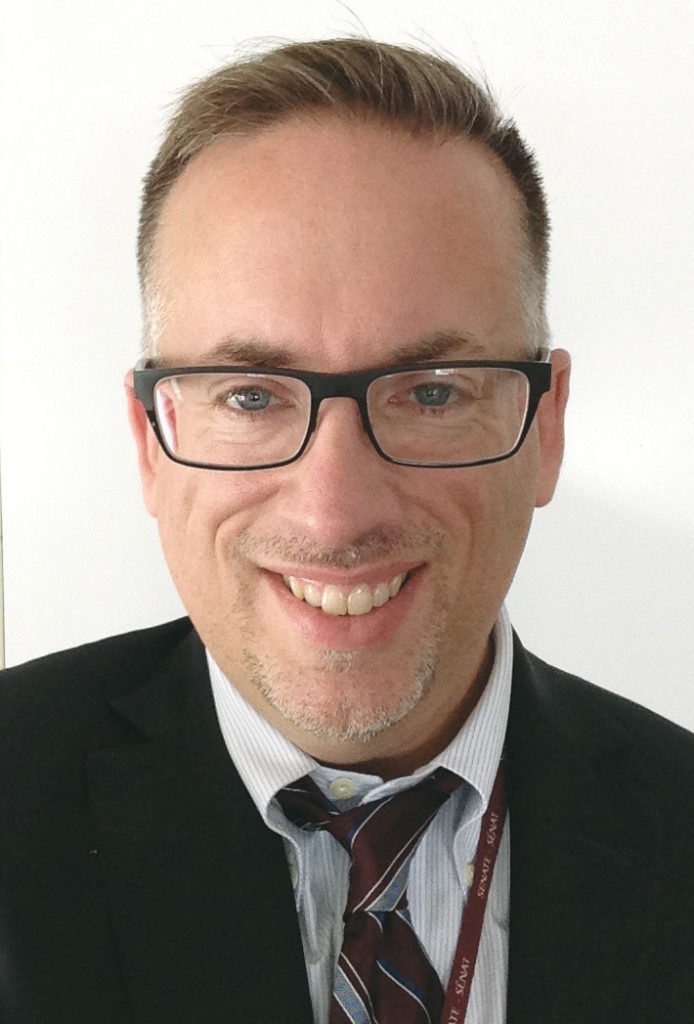
MCPHERSON | I have worked as a freelancer, official, broadcast captioner, and legislative reporter. I still caption to keep my fingers mobile — and because I love writing shorthand — but my full-time job is as the Manager of Debates and Publications at the Senate of Canada. Our amazing reporting team includes both English and French realtime reporters.
JCR | How did you learn about the profession?
MCPHERSON | Although I had always been intrigued when I would see machine reporters in movies or television, I first heard about reporting as a job through a friend who was taking the training.
JCR | What was your motivation to earn so many professional certifications?
MCPHERSON | When I was at reporting school, a gentleman who had been reporting for 50 years came to speak to us. He said that we need to believe in ourselves and be confident in knowing that we can write quickly and cleanly. He was a merit writer and encouraged all of us to strive for certification as a great way to bolster confidence and to develop as professionals. I believe in ongoing professional development, and I have never regretted the time that I have put into trying to achieve certification.
JCR | How have these certifications helped you in your overall career?
MCPHERSON | Having certification has helped to open some doors or made some doors easier to get through. I know that I have been considered for certain jobs because certifications help to demonstrate a commitment to improving myself as a professional or because certification was an essential requirement.
JCR | How has earning these certifications helped you in your overall confidence?
MCPHERSON | There is a strange thing about speed certification. I am someone who wanted to be a merit writer. It was a personal goal for me. Once I passed the tests, things did change. It was like finding that comfortable gear on the highway. Writing fast is much more about the brain than the hands. Allowing my brain to understand that I could write quickly translated into more confidence and quieted some of those inner doubts — it also makes practicing more enjoyable.
JCR | What is the biggest benefit of earning a professional certification?
MCPHERSON | Certification provides a quick indication of a reporter’s commitment to personal improvement. However, certification is not a free pass. The hard work is in making sure that you live up to what the certifications stand for. If certifications have made me want to strive towards what I believe are standards within our association and profession, then I think they have been an excellent investment.
JCR | What would you say to encourage others to earn professional certifications?
MCPHERSON | I would encourage all reporters to continue to set personal goals and put in the work needed to achieve them. For me, certification was a goal that I will never regret. The advice of that reporter emeritus who spoke to my class when I was in reporting school stands true today, and I thank him for helping me to always work towards being a better reporter and a more rounded professional.







